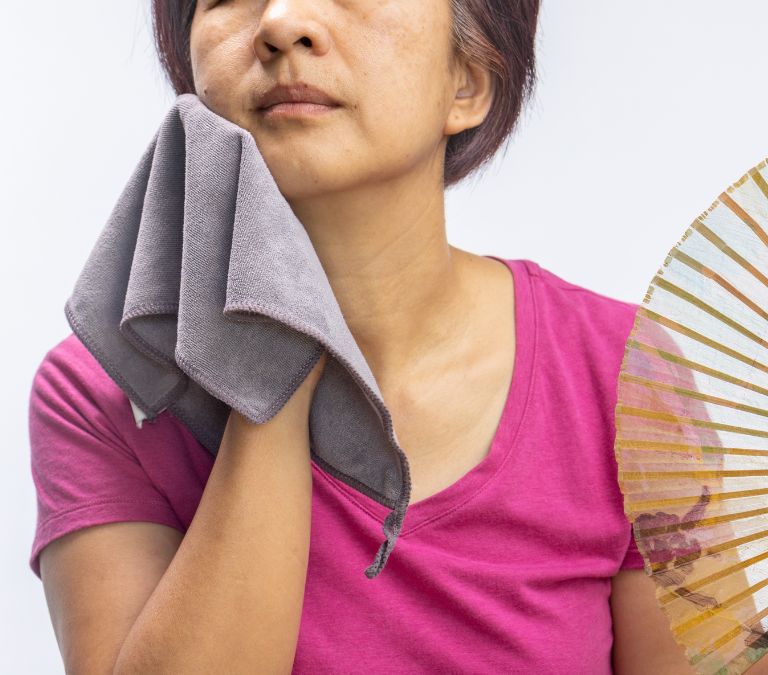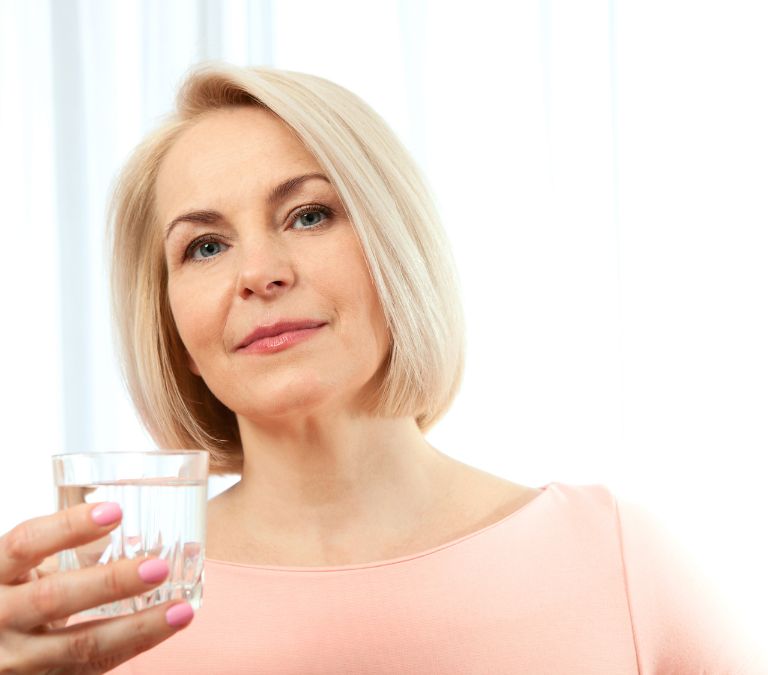Ovarian failure during menopause doesn’t only cause termination in childbearing ability. With ovarian failure, a typical woman becomes vulnerable to various complications that can sometimes be fatal. While menopause is not regarded as a disease, its symptoms have made many women see it as one.
Generally, hot flashes are the most common symptoms experienced during menopause. Studies have shown that more than 80 percent of menopausal women experience hot flashes of varying degrees. It means that 8 in 10 menopausal women have experienced hot flashes. Hot flashes come as heat sensations felt in the body with more effects in the chest region. Hot flashes usually lead to other complications like sweating and anxiety.
While hot flashes are usually regarded as “minor” menopausal symptoms, several studies have proven that frequent hot flashes could affect productivity for many women. For example, frequent hot flashes at night could be so painful and discomforting that sleeping becomes extra difficult. Sleep disruption could expose the body to other complications capable of tampering with productivity.
The Science behind Hot Flashes

The primary cause of hot flashes during menopause is fluctuating hormones. While hot flashes are general symptoms of menopause, it is mostly experienced during perimenopause (the period before menopause is confirmed; when periods are irregular). The science behind the development of hot flashes during menopause hasn’t been well-proven.
However, some research has suggested that the declining estrogens in the body during menopause could affect the hormonal content of the hypothalamus to the extent that it becomes overly sensitive to negligible temperature changes in the body.
These researchers went further to say that changes in the temperature of the hypothalamus can trigger the body to go through a series of reactions to regulate the body’s temperature. The reaction causes it to warm itself, developing hot flashes to cool the body from non-existent or slight temperature changes.
While some other conditions have been linked as causative agents of hot flashes, menopause remains the main cause 90 percent of the time. In some other cases, hot flashes can be triggered by medication or cancer.
Complications Related to Hot Flashes
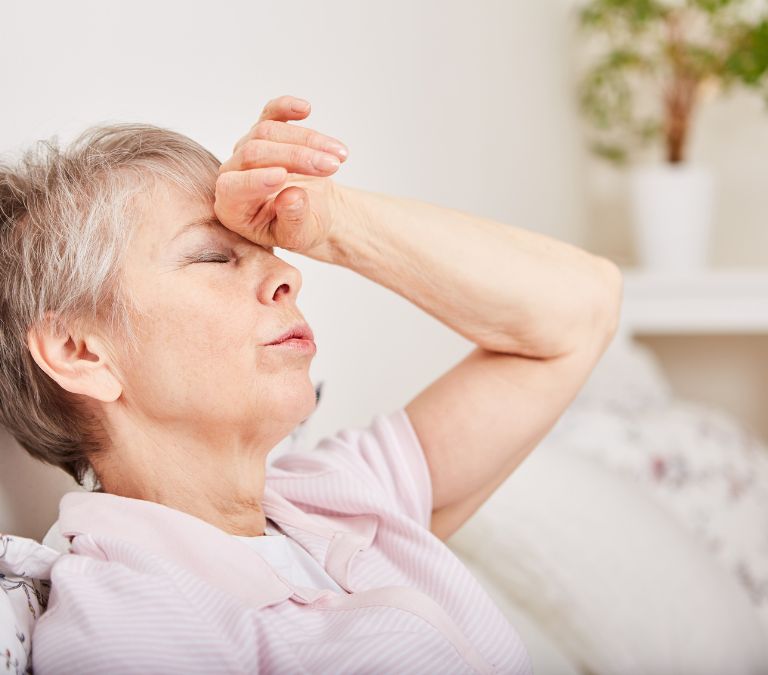
Since different women react differently to menopause, the severity of hot flashes may vary between different women. In some women, hot flashes can appear as a brief feeling of heat in the chest region. For other women, hot flashes appear as severe episodes of absolute pain and discomfort that can cause long-term sleep disruption and, in turn, affect your general quality of life.
Some researchers have suggested that women who experience frequent hot flashes may be more vulnerable to developing conditions like cardiovascular diseases and osteoporosis than women who do not experience frequent hot flashes. However, this research is still very limited.
Treatment of Hot Flashes
Like other menopausal symptoms, hormone therapy is the most effective treatment for relieving hot flashes. However, the risks involved in hormone therapy have made many women reconsider. Today, there are more management options for hot flashes, and while most come with their risks, side effects, and complications, diet options have been regarded as the safest option for treating or relieving hot flashes.
With more research now being carried out on the effectiveness of certain foods in relieving hot flashes, several food options have been identified to help reduce the effects severity of hot flashes in menopausal women.
Foods for Hot Flashes

Leafy Greens
Greens and leafy vegetables, like kale, spinach, cabbage, broccoli, and collard greens, have been studied as likely alleviators of menopausal vasomotor symptoms. Generally, vegetables have been described as the healthiest food options for optimal health. With this, it is not surprising that they have found a way to top the list of foods for hot flashes.
Greens are like estates, with several houses inhabiting numerous nutrients and antioxidants. From iron to calcium, veggies are nutritional powerhouses for some of the most sought nutrients of society. The high antioxidant content of greens makes them very important for promoting a healthy cardiovascular system, regulating blood sugar levels, and stabilizing estrogen levels in the body. Menopausal women are advised to include more greens in their diets.
Today, there are more food options, and many contain enough sugar to bake a cake. In stores worldwide, the shelves are filled with foods of alarmingly high sugar content. By consuming these foods frequently, menopausal women are increasing their risks of developing more menopausal symptoms of high severity.
Natural fruits and vegetables have been given freely to help with this sugar problem. With the high nutritional and low sugar content of veggies, taking veggies can be equivalent to taking many of the supplements and medicines found in pharmaceutical stores at very high prices.
Red Wine

As unbelievable as it may sound, red wine and other alcohol products could help relieve hot flashes in menopausal women. Studies have shown that women who are infrequent consumers of alcohol are less likely to show severe cases of hot flashes when compared to women who do not take alcohol.
Studies have shown that red wine can help slow the body’s estrogen removal. Since the decline in estrogen content is the reason for many menopausal symptoms today, balancing the estrogen levels could be a good management option; after all, isn’t that what hormone therapy does?
Even with the effect of red wine and other alcohol products on hot flashes, menopausal women are advised to consume as little as possible (a glass per week is good enough). Only infrequent drinkers show decreased hot flashes. Consuming alcohol frequently will only lead to more severe cases of menopausal symptoms.
Eggs
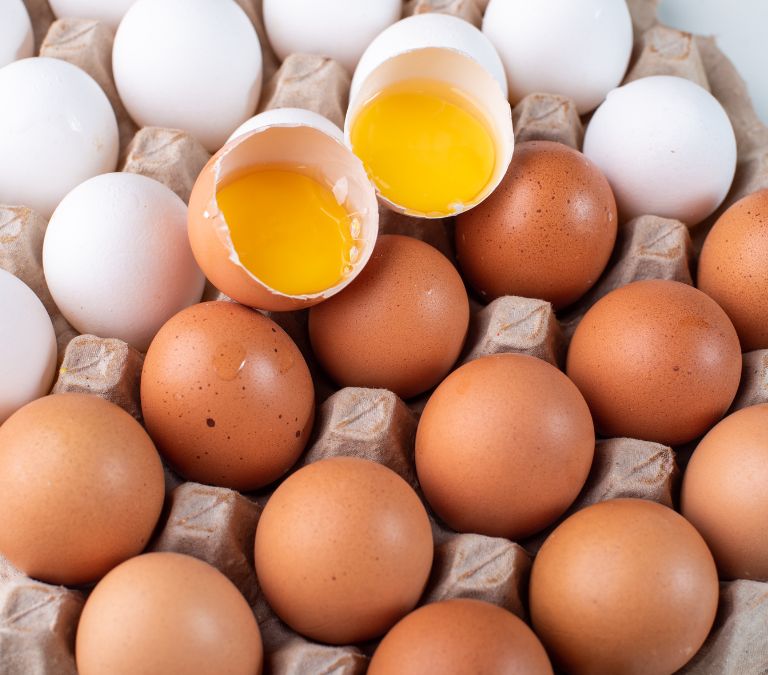
Worldwide, eggs are one of the most common foods. In the United States, most Americans include eggs in their breakfast. While this food can be very nutritious and satisfying, many people do not know they possess cooling abilities for hot flashes. Studies have shown that the high vitamin B content in eggs can be essential for balancing the functionality of the adrenal gland.
Since the ovaries aren’t effective enough in producing estrogen during menopause, the adrenal glands can help with the estrogen problem by producing hormones convertible hormones. Generally, the adrenal glands produce a form of estrogen known as estradiol. Estradiol hormones can be important for treating hot flashes caused by fluctuating hormones.
Stabilizing the adrenal gland facilitates the production and secretion of estradiol, and menopausal symptoms like hot flashes and night sweats are effectively managed. Eggs are “cooling foods” and aren’t just good for managing hot flashes but are very nutritious in maintaining optimal health.
Soy
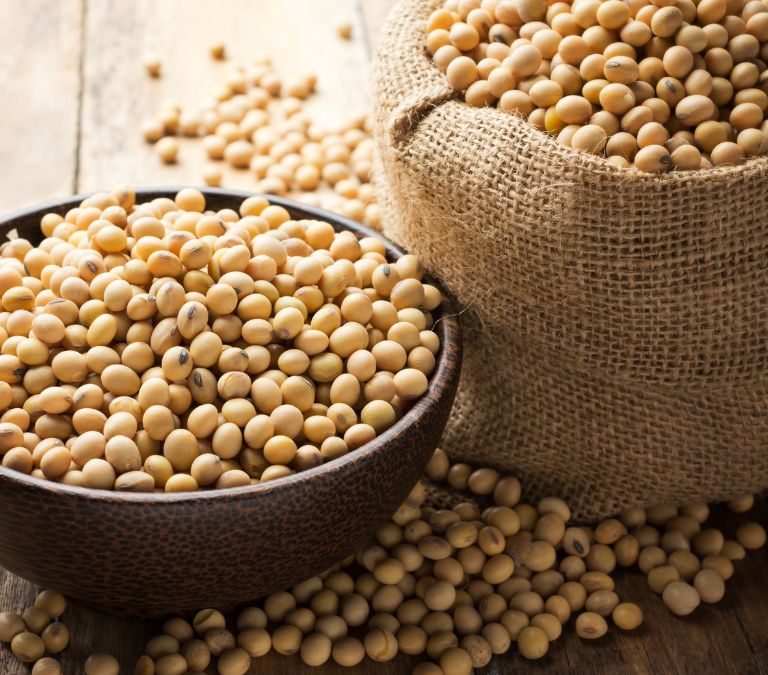
Soy is a plant food with very high protein content. Soy has been attributed to numerous nutritional benefits. Of these benefits, soy’s effects on reducing hot flashes in menopausal women are unknown. In soy, there is a very important compound known as daidzein. Studies have linked daidzein as a potential management option for hot flashes in menopausal women. These studies suggested daidzein as an alternative to hormone therapy.
Soybeans can be effective enough to amplify estrogen’s effects in the body. It can help the body undergo fewer complications even when hormone levels decline. Generally, menopausal women are advised to regularly include soy in their diets to help not just with hot flashes but for a smooth transition into menopause and for living healthy lives. Some soy-based products include tempeh, soy milk, soybeans, and tofu.
Garlic
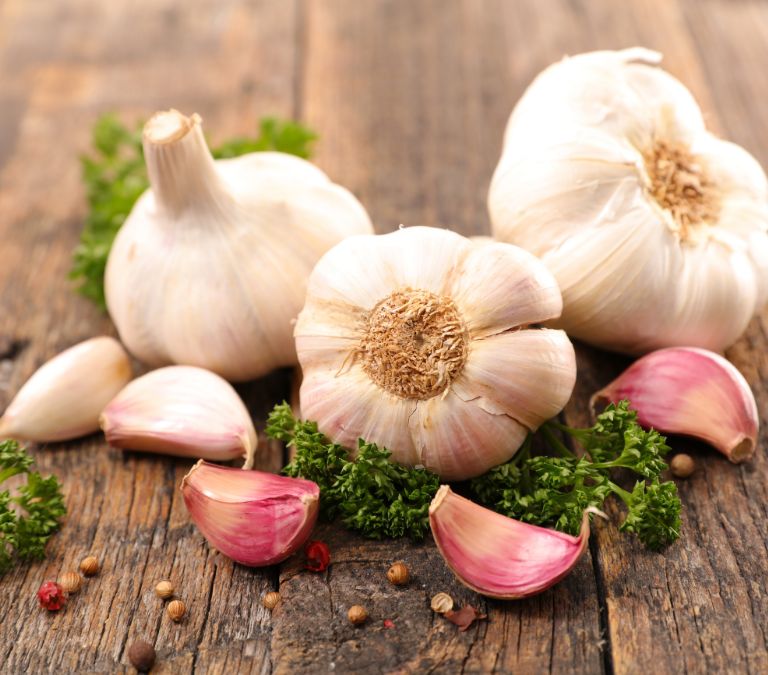
When it comes to maintaining a healthy cardiovascular system and boosting the immune system, garlic is a 10/10. Many people do not know that this popular plant can also be effective for hot flashes and other menopausal symptoms. Since hot flashes, like many other menopausal symptoms, are linked to a decline in hormonal levels, studies have attributed the consumption of garlic as effective enough in the treatment and management of several menopausal symptoms due to its high content of phytoestrogen.
Phytoestrogens are seen as close relatives of estrogen. They are gotten from plants and can be very helpful in helping to mimic the functions of estrogen in the body. By doing this, they can help prevent hot flashes, as well as other menopausal symptoms.
Bell Peppers

These spicy and nutritious food supplements contain high content of vitamin C, nutrients known for their antioxidant properties and essential for strengthening membranes of the blood vessels. These properties of bell peppers make them important for menopausal women experiencing hot flashes.
While vitamin C isn’t a get-well-quick treatment for hot flashes, its antioxidant properties can be useful in helping to prevent them. Depending on how ripe they are, bell peppers come in different colors. However, yellow bell peppers are believed to contain more vitamin A, an important consideration when adding bell peppers to your diet for menopausal symptoms.
Other than being linked to helping hot flashes, the antioxidant properties of bell peppers also make them excellent food items for preventing problems like cardiovascular diseases, cancer, diabetes, and Alzheimer’s disease, problems amplified in menopausal women. Bell peppers can be eaten raw or cooked by frying, grilling, roasting, or as a puree. Regardless of how it is consumed, including more bell peppers in your diet can greatly influence how you react to menopausal symptoms.
Whole Grains
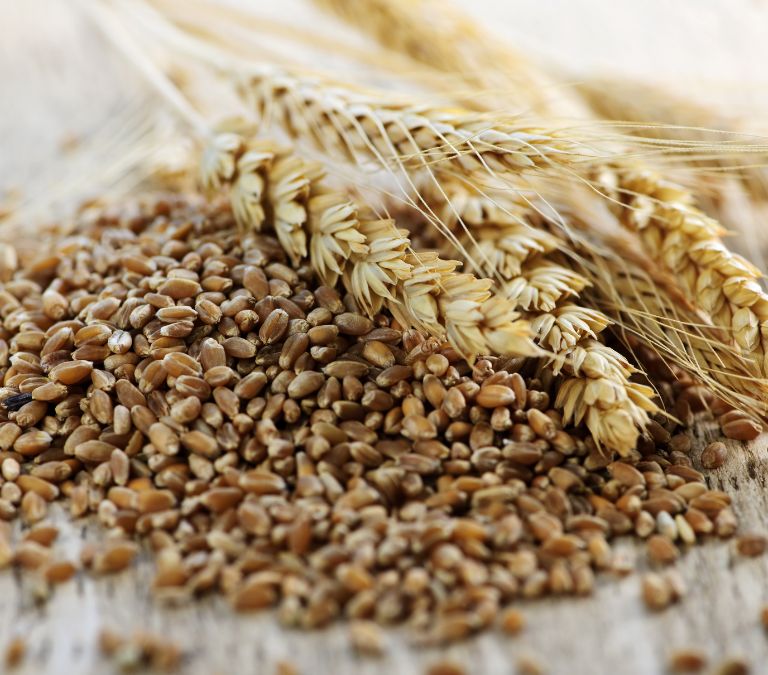
Whole grain foods like barley, whole-wheat pasta, whole-wheat bread, millet, oatmeal, and brown rice, contain high amounts of fiber which can be very useful for managing many menopausal symptoms, including hot flashes. While studies haven’t seen significant effects in the consumption of fiber for hot flashes, some women have reported pleasing results in their hot flashes by including more whole grains and other fiber-rich foods in their diet plans. Besides its effects on hot flashes, fiber-rich foods like whole grains and flaxseeds have been linked as likely management options for weight gain and certain cardiovascular diseases during menopause.
Mushrooms
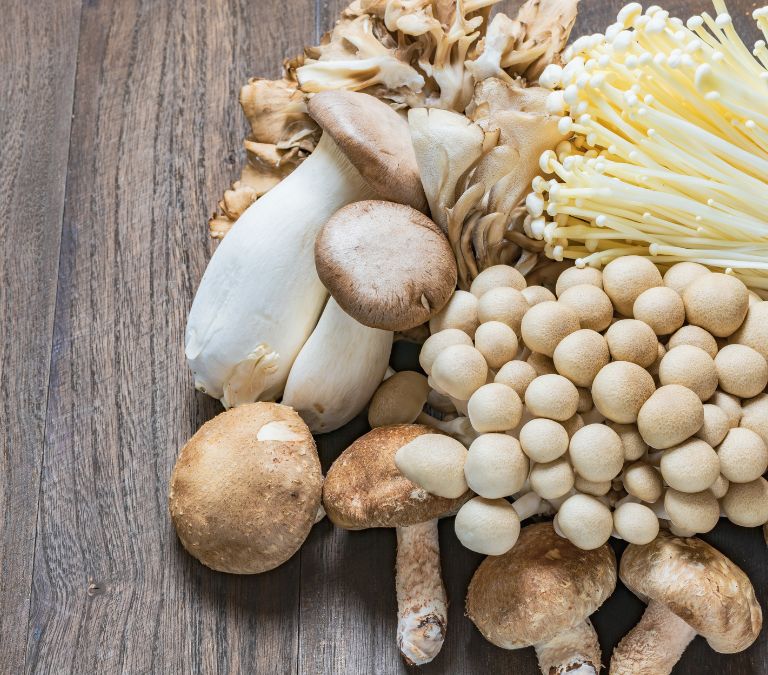
Mushrooms are much underrated in the food industry. Yes, you see them on TV and in stores, but how often do you eat them? It’ll be wise to know that mushrooms are quite effective for balancing hormonal levels during menopause. Reishi, shiitake, maitake, cordyceps, and lion’s mane mushrooms have been shown to have certain effects on balancing hormones during menopause.
The selenium content of mushrooms makes them even more important for treating hot flashes because lack of selenium is often linked to increased stress. Increased stress is popular, especially in women who suffer from frequent hot flashes. By eating mushrooms, the body reacts positively to stress, decreasing the severity of hot flashes.
Strawberries
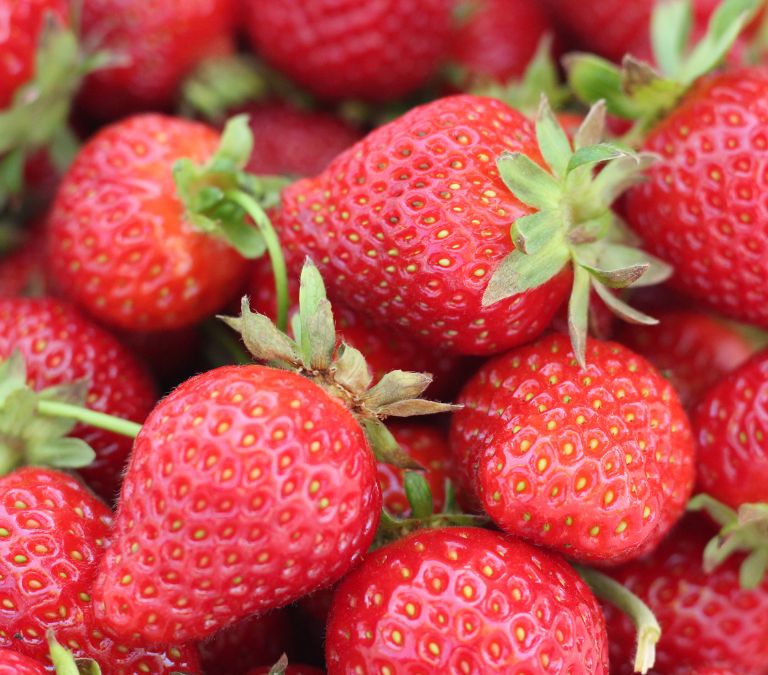
Just like garlic, strawberries are also high in phytoestrogens. With a high content of phytoestrogens, strawberries can help to balance hormone levels which may help relieve hot flashes. Besides being carriers of phytoestrogens, strawberries are also powerhouses for vitamin C, antioxidants linked as likely alleviators of several cardiovascular diseases.
Vitamin C has been suggested as a remedy for hot flashes because it enhances the utmost functionality of adrenal glands in the production of stress hormones. Since more severe cases of hot flashes are experienced during stressful situations, the production of stress hormones can help the body prevent hot flashes during stressful situations.
Hormone Therapy for Hot Flashes
Hormone therapy is the most effective treatment and management option for menopausal symptoms. With more than 800 million women in menopause worldwide, the need for effective treatment options has never been this amplified. Since declining hormones characterize menopause, hormone therapy works by introducing more hormones already in decline in the body. This way, several symptoms are reduced or, better still, completely alleviated.
Compared to other treatment options, hormone therapy gives quicker results. It is more efficient and produces more risks, often with high severity. Since different women react differently to menopause, the ratio of effectiveness to risks could vary. For some menopausal women, hormone therapy is the gateway to significant solutions.
For other women, hormone therapy causes more symptoms and makes their menopausal journey more excruciating. The risks associated with hormone therapy are why more women are venturing into other treatment options for their menopausal problems.
Generally, studies have shown that long-term use of hormone therapy could increase your vulnerability to diseases like breast cancer, endometrial cancer, dementia, loss of muscle strength, and various cardiovascular diseases. Also, women with underlying illnesses like high blood sugar and stroke. Regardless of the symptoms, hormone therapy might still be the right option for you. For this reason, it is important to have a comprehensive discussion with your doctor before going for any hormone therapy.
Lifestyle Changes
When it comes to adaptation, the human race has done quite well. While walking under the scorching sun is still very difficult, at least we made air cons and sunscreens to help us with it. The point is that no matter the condition, humans have invented or adopted lifestyle changes to combat the issue. It is why we thrive so well on earth.
Menopause is a different phase of life that introduces us to new struggles and lifestyles. For example, you can kiss bye-bye to the use of sanitary pads and overly stressful menstrual cycles. Unfortunately, hot flashes come knocking on the door.
While various medications have been made available to combat hot flashes, lifestyle changes are still important for optimal and satisfactory results. Here are some of the best lifestyle changes for menopausal women struggling with hot flashes:
Drinking More Water
For obvious reasons, drinking water can help relieve hot flashes in menopausal women. Drinking more water is the easiest, painless, and most stress-free lifestyle option any menopausal woman can adopt. Generally, drinking water facilitates healthy skin, hair, brain function, and every part of the body.
As menopausal women, staying hydrated all the time can help regulate the body temperature, which can help you with hot flashes. It is advised to carry cold water around so you can drink some during waves of hot flashes and splash it on your face. Doing this can help you regulate your body temperature faster.
Reducing Intake of Caffeinated products, termination of smoking
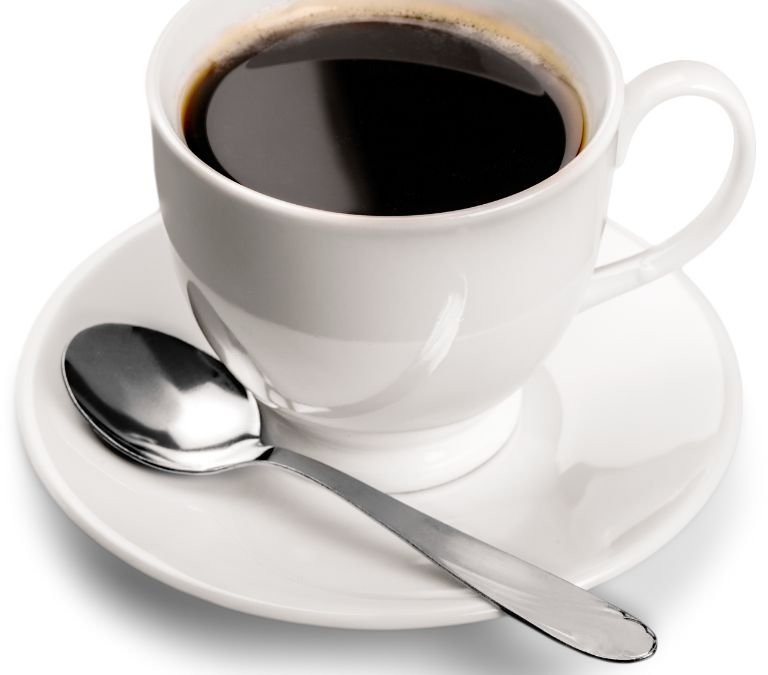
Studies have shown that women who take more coffee and other vasomotor symptoms are more likely to experience more severe cases of vasomotor symptoms. Also, cigarette smoking was associated with more worrying cases of vasomotor symptoms. Studies have also shown that women who take more alcohol are less likely to develop severe cases of hot flashes than women who do not consume alcohol at all. Since women react differently to menopause, you must identify and avoid your trigger points. If you notice that certain activities aggravate your hot flashes, you should avoid them.
Staying in Cool, Well-ventilated Rooms and Environments
Hot flashes are bad and get worse when in stuffy and hot places. To help women with this, doctors advise using air cons and staying more in well-ventilated rooms. At night, it is important to sleep in a cool room, not a cold room. Hot flashes do not always happen, and as such, you might end up freezing yourself even with no sight of hot flashes. Before sleeping, ensure your room has a cool feel so that when hot flashes come knocking, the heat of the environment doesn’t aggravate it.
Wearing light clothes to bed
Hot flashes come in waves. Most women experience from 4 to 14 cases of hot flashes daily. In other words, it isn’t a condition that stays in the body and doesn’t leave. Due to the timely nature of hot flashes, wearing light clothes all the time isn’t compulsory. Most hot flashes happen at night, leading to night sweats and the inability to sleep. For this reason, menopausal women are advised to wear light clothes to bed. With light clothes, your body gets enough air and isn’t choked during hot flashes.
Exercises & Physical Activities

As unusual as it may sound, exercises can help with hot flashes. Studies have shown that women who engage in certain exercises are less likely to experience severe cases of menopausal symptoms, which include hot flashes. The science behind the importance of exercises for hot flashes is simple; active participation in some exercises can improve cardiorespiratory health and vascular functions, which deals with vasomotor symptoms like hot flashes and night sweats.
While the actual cause of hot flashes during menopause is still debatable, the effect of exercises in alleviating these hot flashes is almost widely accepted. Sedentary women were more likely to experience more severe cases of menopausal women than physically active women.
Twenty-four menopausal women were placed into two groups, with 12 women assigned to each group. Participants were made to engage in exercises and other physical activities in one group. In the other group, there was no change in their daily activities. The group of active women spent time in the gym using the treadmill, cross trainer, and bike. In these women, it is observed that during sessions, the ease of breathing increases as more sweat is secreted.
After 4 months of active participation, these menopausal women were asked to fill out a questionnaire on how their menopausal symptoms have evolved for 4 months. With more emphasis on hot flashes, the research proved to be rather successful in studying the effects of exercises on hot flashes.
After 4 months, the severity of hot flashes was measured using the exact measurement patterns before the program started. The research observed that sweating reduced greatly, and even the amount of blood flowing to the skin and chest region reduced significantly. While hot flashes didn’t completely go away, they greatly reduced.
No significant drop in hot flashes severity was recorded in the other group of women who didn’t engage in any forms of physical activities for 4 months. While many scientific bodies haven’t proved exercises for hot flashes as effective enough, we cannot overlook the overall effects it reduces the severity of hot flashes and other menopausal symptoms. Some common exercises for hot flashes include cycling, jogging, and running.
Using the stairs instead of the elevator can be useful for managing hot flashes. Menopausal women are advised to adopt consistency to get optimal results. Drafting out a plan can be effective enough. You can take 30 minutes of your time every day to use the treadmill or even use the stairs instead of the elevator. For some reason, it is important to discuss your plan with a doctor. Certain exercises amplify menopausal symptoms like osteoporosis.
Conclusion
Hot flashes are the most common menopausal symptoms today. To get rid of hot flashes, many menopausal women have resorted to using substances that are very likely to worsen the situation. With more innovations in the medical industry, more treatment and management options are now available for treating and managing hot flashes.
Generally, diet options are suggested for dealing with several menopausal symptoms. However, its effectiveness isn’t guaranteed. For this reason, menopausal women are advised to speak to a doctor before adopting any treatment or management plan for their menopausal symptoms.
Not only will a doctor tell you what to do, but they will also guide you on how to go about it and the best available options for you. In Virgil’s eternal words, the Roman poet says, “The greatest wealth is health.”

